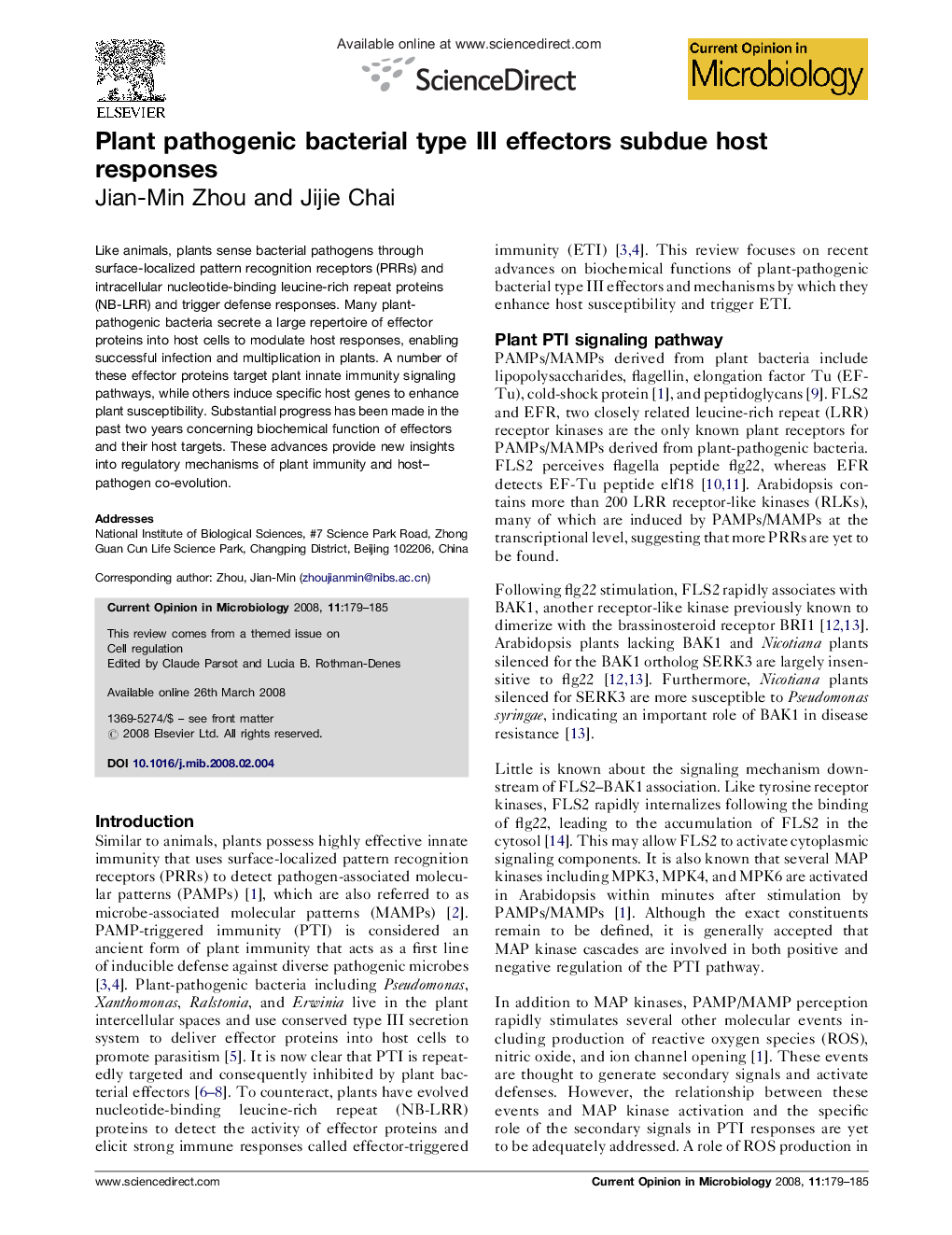| Article ID | Journal | Published Year | Pages | File Type |
|---|---|---|---|---|
| 3399509 | Current Opinion in Microbiology | 2008 | 7 Pages |
Like animals, plants sense bacterial pathogens through surface-localized pattern recognition receptors (PRRs) and intracellular nucleotide-binding leucine-rich repeat proteins (NB-LRR) and trigger defense responses. Many plant-pathogenic bacteria secrete a large repertoire of effector proteins into host cells to modulate host responses, enabling successful infection and multiplication in plants. A number of these effector proteins target plant innate immunity signaling pathways, while others induce specific host genes to enhance plant susceptibility. Substantial progress has been made in the past two years concerning biochemical function of effectors and their host targets. These advances provide new insights into regulatory mechanisms of plant immunity and host–pathogen co-evolution.
